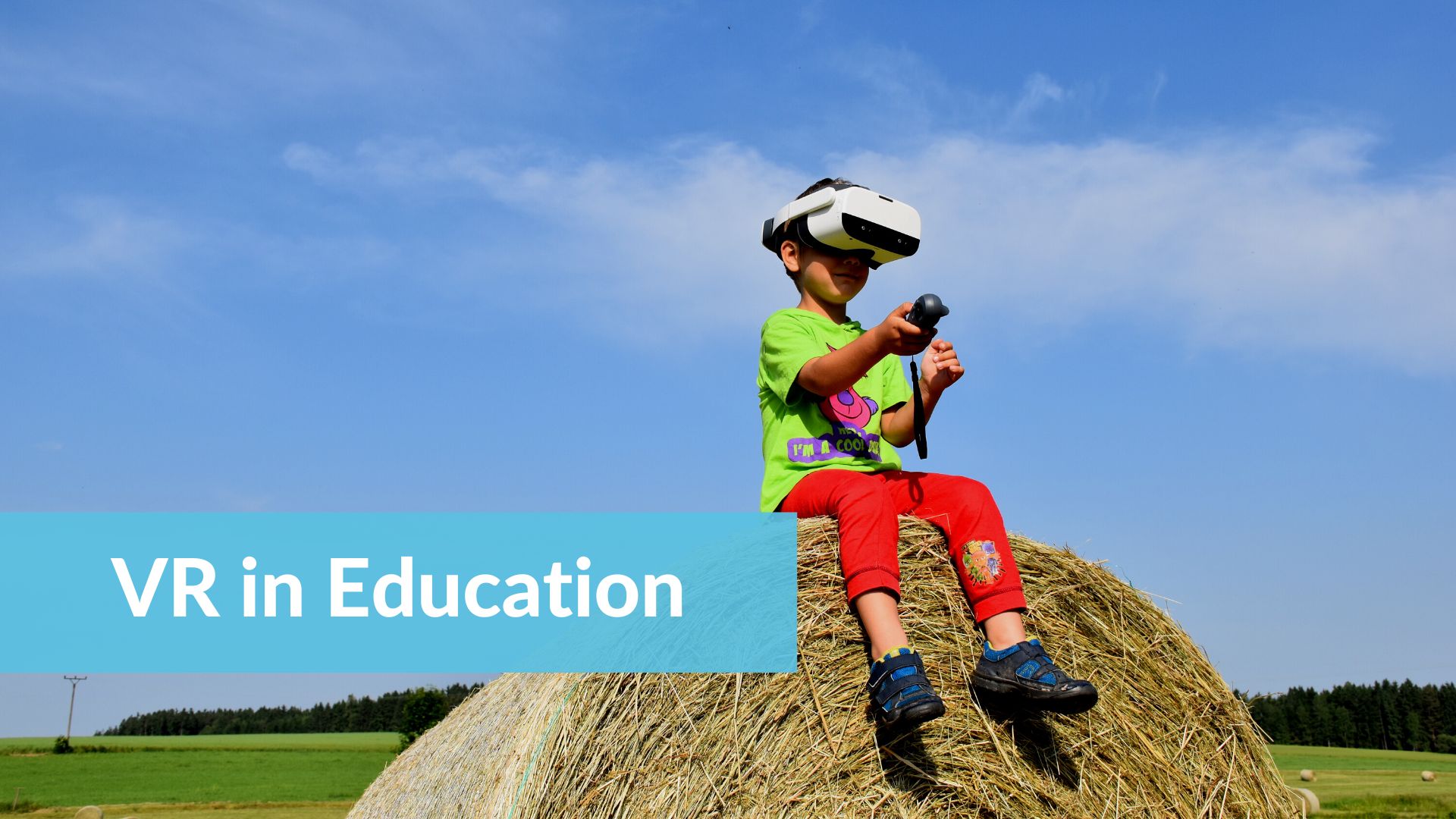Your cart is currently empty!
The use of Virtual Reality in the learning process is not exactly new, and it is mainly associated with professional training. While VR tech was expensive, the justification was often training dangerous tasks safely. However, with more extensive access to the hardware and the increasing amount of technology entering the classrooms, VR is now an option for general education at any level.
How can Virtual Reality be helpful in the classroom? There are many exciting ways in which VR can be used to help students learn and make classes more dynamic and interesting. VR has progressed way beyond entertainment, and we need to talk about it.
One of the biggest complaints about modern education is how theoretical it is, based on fact retention, i.e. memorizing. Yet, education must be more than that. Here is where VR can help.
More doing, less listening
Students can experiment with things they would never do in any other situation due to complexity or danger. They can interact with the content instead of listening to a teacher talking about it.
This doesn’t mean virtual reality will save modern education. However, it can make students’ lives easier and more fun. In addition, being able to actually “do” things raises engagement and increases knowledge retention at all ages.
Emotional Response needed
The emotions connected to a specific experience help us remember it and give it meaning. Therefore, interacting and manipulating, instead of simply listening, will allow the students to develop more emotion and, consequently, have an easy time remembering contents.
Visualizing abstract concepts in action helps them comprehend phenomenons and concepts that would otherwise be words on paper.
Besides, new generations are open to experiment and technology. The students from 1st grade to university are already in the right mindset to give VR a chance, which is one more step toward success.
Better Memory
There are already studies showing that VR technology helps students retain knowledge easily. For example, in March 2019, EdTech cited a study that showed biology class students with access to mixed reality had better grades than others with more traditional teaching methods.
This supports the preliminary notions that AR and VR help with retention and recall. According to some studies, the retention ability increases by around 9%.[
Development of Empathy
Nothing can replace human contact and real relationships, but that doesn’t mean technology can’t give it a hand.
VR allows teachers to bring all kinds of places, people, and experiences into the classroom. It will allow the students to experiment and observe different cultures, learning to respect others’ differences and value them. It generates empathy.
Is it the future?
Some believe that VR is the future of education. Depending on how you describe the “future”, this may be true. I don’t think VR can replace and change everything. The connection between a student and a teacher makes all the difference in the learning process.
However, VR is a ground-breaking technology that can help make classes more interesting and students more autonomous in their learning journey. This doesn’t mean that our students must spend most of their days in the “metaverse”. It is more of an extra help that can be used in specific situations.
Visiting an environment on the other side of the planet instead of learning about it in Geography books is funnier and enriches the learning experience. Can you imagine being in the middle of some historical happenings? Or think about the art class. You can now visit and observe that masterpiece you’re talking about. How about science? Studying anatomy, chemistry, and biology… without risks and being able to observe so much more. This is the role of VR. It will not substitute the teachers but work with them to provide the best learning experience possible.
The role of Virtual Orator
At Virtual Orator, we aim to prepare the students for the real life, by the principle of putting them in the situation they need to learn. School is a very social oriented and often judgmental place. Virtual Orator provides a safe environment to train and learn without social consequences.
Soft skills such as public speaking are more critical than ever for professional and personal success. Knowing how to communicate effectively and confidently can be the difference, for example, between getting hired or not. Yet, you can’t pick a group of random people, sit them in a room and force them to listen to you.
That’s why Virtual Orator is so life-changing. We give you an audience that will pay the exact amount of attention you need, with all the perks the software offers, that you can consult in other sections of our website.
Many of our biggest clients are schools and universities aiming to prepare their students for the real world. That is what we believe the role of VR in education should be.
One more step towards evolution
Knowledge is the basis of all civilization and must be transmitted to each new generation in the best way possible. Since the first humans, we have constantly looked for better ways to teach and learn.
That unstoppable search now has the possibility of a new improvement – give students the experience beyond the theory and make it as real as possible.
Virtual Reality will not solve all the problems in educational systems worldwide, but it is, no doubt, a big step forward.
Cátia is a psychologist who is passionate about helping children develop and train social skills.



Leave a Reply